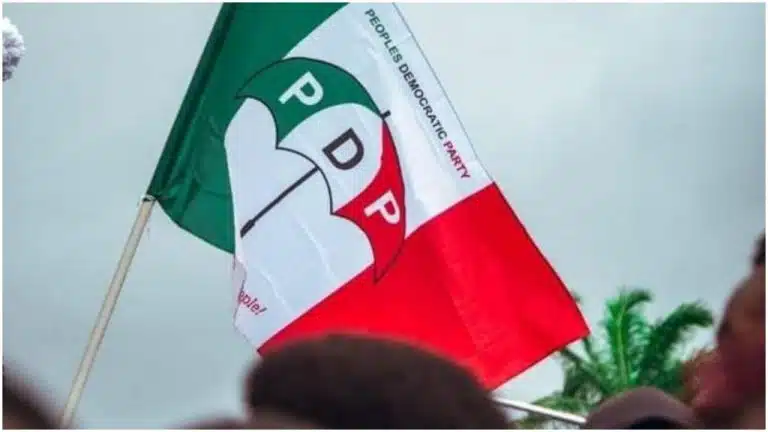The Peoples Democratic Party faces mounting internal discord as prominent leaders clash over the party’s approach to selecting its 2027 presidential nominee, with traditional zoning advocates squaring off against merit-based selection proponents.
The brewing controversy has exposed fundamental disagreements within Nigeria’s main opposition party about whether to maintain its historical power rotation formula or prioritize candidate competence over regional considerations. This ideological split threatens to complicate the party’s preparation for the crucial 2027 electoral contest.
Leading the charge for maintaining zoning arrangements, former Deputy National Chairman Bode George has called on the party to honor its foundational principles by nominating a southern candidate for the presidency. George emphasized that power rotation was deliberately incorporated into PDP’s structure to prevent ethnic discord and promote national unity across Nigeria’s diverse regions.
“Rotation of elective offices was envisaged by the founders of the PDP as a panacea to the needless agitation for power among the ethnic nationalities that make up Nigeria,” George explained, warning that abandoning this tradition could fragment the party’s national coalition and undermine its electoral prospects.
Supporting this perspective, former Deputy National Publicity Secretary Diran Odeyemi stressed the importance of establishing clear zoning parameters before the party’s upcoming national convention. He suggested that if northern leadership retains control of the party’s chairmanship, southern regions should automatically produce the presidential candidate to maintain balanced representation.
Odeyemi revealed that a dedicated zoning committee would provide strategic recommendations as the party approaches its convention scheduled for later this year. Additionally, he advocated for reconciliation efforts with Federal Capital Territory Minister Nyesom Wike, arguing that mending this relationship could significantly boost PDP’s competitive position.
“Wike needs the party as much as the party needs him. He is angry, but we need to listen to him and do the right thing. Reconciliation is part of the processes used in building and stabilising political parties,” Odeyemi noted.
However, Deputy National Youth Leader Timothy Osadolor has emerged as a vocal opponent of rigid zoning requirements, arguing that Nigeria’s complex challenges demand leadership selection based on capability rather than geographical origin. Osadolor contends that ethnic and religious considerations have contributed to the country’s current difficulties and should not dominate candidate selection processes.
“I do not believe we need to stifle democracy. We are where we are today because of our inclination to promote ethnic and religious sentiments,” Osadolor declared, advocating for an open democratic process that allows the most qualified candidate to emerge regardless of regional background.
While acknowledging that a southern candidate might ultimately win the nomination, Osadolor insisted this outcome should result from genuine democratic consensus rather than predetermined zoning arrangements. He emphasized that the party should focus on identifying leaders capable of addressing Nigeria’s pressing socio-economic problems.
Osadolor also criticized President Bola Tinubu’s administration, alleging that it has continued the pattern of unbalanced appointments that characterized former President Muhammadu Buhari’s tenure, suggesting that regional favoritism remains a persistent problem in Nigerian governance.
The party’s forthcoming 100th National Executive Committee meeting on June 30 in Abuja is anticipated to feature intensive discussions about the zoning controversy, with the outcome likely to shape PDP’s strategic direction for the 2027 elections. The resolution of this internal debate could prove decisive in determining whether the opposition party can present a unified front against the ruling All Progressives Congress.

















